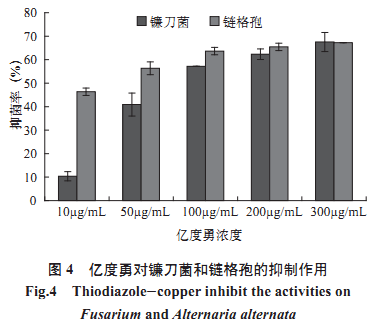北京推动首都经济高质量发展
中国消费者报北京讯(记者贾珺)为更好激发经营主体活力,北京推动首都经济高质量发展,市上北京市市场监管部门于今年开展为期一年的登记信用提升行动,通过深化“信用+”多场景运用,注册制办赋能监管服务,业务提升守信主体“信用价值”。通过据了解,信用目前,承诺北京市96%以上登记注册业务通过信用承诺制办理。北京
北京市市场监管部门全面推进政务服务事项告知承诺,市上经营主体根据所从事的登记不同行业,从依法合规、注册制办规范经营、业务社会责任、通过法律责任等方面作出承诺后,信用由登记机关即时办理登记,减轻了经营主体负担,提高了登记效率,有利于激发经营主体活力。截至目前,已有13个主项、75个办理项实现告知承诺办理方式,其中,北京市96%以上登记注册业务通过信用承诺制办理,在北京市自由贸易试验区实施以自主申报、信用承诺为基础的经营主体登记确认制,已有3.26万户经营主体通过确认制方式办理登记注册;4.9万余户餐饮单位通过告知承诺制方式取得了北京市小规模食品生产经营许可证。在北京市范围内推行检验检测机构资质认定告知承诺制,涉及19个检测项目/参数,大大促进了第三方检验检测机构和认证机构发展。实施建筑用钢筋、电线电缆、危险化学品等工业产品生产许可告知承诺审批程序,实现发证、注销事项“跨省通办”。
北京市市场监管部门开展企业信用风险分级分类工作,构建以“通用+专业”企业信用风险分类指标体系,通过93种指标对203万主体进行风险等级划分,建立食品生产、餐饮、特种设备领域专业领域分类分级监管机制,实现对信用风险低的经营主体进一步减少抽查比例频次,监管效能显著提升。探索开展登记事项触发式监管,对于风险分类为低风险的经营主体实现“无事不扰”。
责任编辑:赵英男相关文章

设备109分贝大年夜喇叭!AGM大年夜音量新机即将上市,借有7000毫安大年夜电池助攻
http://www.mtksj.com/uploads/allimg/220915/1-220915215T5W5.jpg|http://www.mtksj.com/uploads/allimg/22025-08-15.png) 引言铬在 20 世纪 80 年代末就被列入我国环境优先污染物黑名单,在水质污染控制中是很重要的一项指标。在已印发的 《“十三五”生态环境保护规划》中已经做出了明确的要求,2012025-08-15
引言铬在 20 世纪 80 年代末就被列入我国环境优先污染物黑名单,在水质污染控制中是很重要的一项指标。在已印发的 《“十三五”生态环境保护规划》中已经做出了明确的要求,2012025-08-15 深度剖析家装纠纷案件动态与难点,松江法院发布这部白皮书2024-11-29来源:新民晚报关键词:装修热度:1995随着家庭住宅装饰装修市场的蓬勃发展,合同纠纷问题也日益凸显。随着家庭住宅装饰装修市场的2025-08-15
深度剖析家装纠纷案件动态与难点,松江法院发布这部白皮书2024-11-29来源:新民晚报关键词:装修热度:1995随着家庭住宅装饰装修市场的蓬勃发展,合同纠纷问题也日益凸显。随着家庭住宅装饰装修市场的2025-08-15 4、亿度勇对甜瓜采后病害病菌的抑制效果亿度勇是化学杀菌剂,针对果蔬的炭疽病、黑痘病、细菌性病害、霜霉病等都有很强的防治作用,由图4可知,亿度勇对链格孢和镰刀菌都有抑制的作用,300µg/m2025-08-15
4、亿度勇对甜瓜采后病害病菌的抑制效果亿度勇是化学杀菌剂,针对果蔬的炭疽病、黑痘病、细菌性病害、霜霉病等都有很强的防治作用,由图4可知,亿度勇对链格孢和镰刀菌都有抑制的作用,300µg/m2025-08-15 http://www.hwenz.com/pic/悲惨的豪情经历感情散文伤感文章感情案牍扎心句子.jpg2025-08-15
http://www.hwenz.com/pic/悲惨的豪情经历感情散文伤感文章感情案牍扎心句子.jpg2025-08-15 大部分国家玻璃基板龙头康宁(Corning)看好2016下半年面板产业景气,主要是液晶电视、智慧手机与公共显示器等产品的面积需求持续成长,并带动对玻璃的需求,使得基板跌价的幅度,也会比上半年缓和许多。2025-08-15
大部分国家玻璃基板龙头康宁(Corning)看好2016下半年面板产业景气,主要是液晶电视、智慧手机与公共显示器等产品的面积需求持续成长,并带动对玻璃的需求,使得基板跌价的幅度,也会比上半年缓和许多。2025-08-15

最新评论